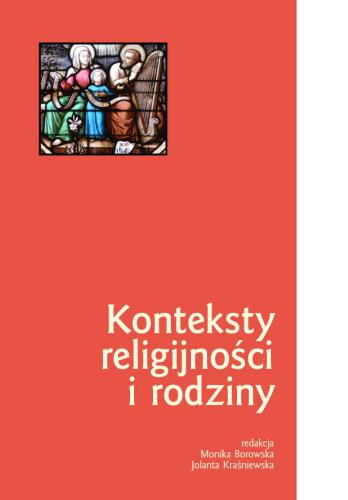Centrality of religiosity and the personal nature of a relationship with God vs. personal integration in early adulthood
Synopsis
The article concerns the links between the quality of religiosity of young adults and their personal integration. The theoretical underpinnings of the referred research are: Huber’s centrality of religiosity concept (2003), Jaworski’s concept of the personal religiosity (1988), and Zagórska and colleagues’ post-Eriksonian concept of personal integration (2014). The objective of the research was to verify the hypotheses regarding the dependencies between the quality of religiosity (its centrality and the personal character of the relationship with God) and personal integration in young adults. The following tools were applied: Huber’s Centrality of Religiosity Scale (Z-15) adapted to Polish by Zarzycka (2007), Jaworski’s Personal Religiosity Scale (SRP-1) (1988), and the Personal Integration Questionnaire (KINTO) by Zagórska, Miguta, and Jelińska (2014). A total 775 respondents (235 men and 540 women) were surveyed online, 470 of which were believers aged 18-35 years (M = 25.24; SD = 4.79) and 305 non-believers of the same age, of both sexes, residents of urban and rural areas alike. It turned out that young adults in whom religiosity occupies a more central place in their personality are more strongly personally integrated in the scope of trust, identity, intimacy, and generativity. The personal character of the relationship with God is also positively related to these psychosocial resources (apart from identity). Young believers, compared to non-elievers, are characterised by a stronger trust/hope – as a vital force allowing tchem to feel secure in the world and undertake successive developmental challenges – and concurrently have a weaker sense of possession of resources related to placing trust in oneself: autonomy, initiative, and industriousness. No sex-dependent differences were found in the scope of the quality of religiosity and personal integration. It can be concluded that the quality of religiosity of young adults affects the growth and integration of their psychosocial resources related to relationness and closeness with God and people, as well as concern for matters of God and of another person. At the same time, it cannot be excluded that the level of integration of these resources has a rebound effect on the quality of religiosity of young people.



